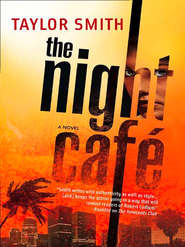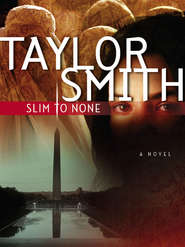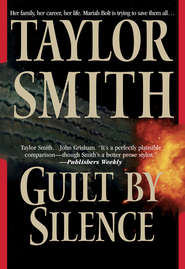По всем вопросам обращайтесь на: info@litportal.ru
(©) 2003-2024.
✖
The Night Café
Настройки чтения
Размер шрифта
Высота строк
Поля
Chapter Twenty-Two
Chapter Twenty-Three
Chapter Twenty-Four
Chapter Twenty-Five
Chapter Twenty-Six
Chapter Twenty-Seven
Chapter Twenty-Eight
Chapter Twenty-Nine
Chapter Thirty
Chapter Thirty-One
Chapter Thirty-Two
Prologue
Los Angeles
January 1
“People remember pain. They’ve done studies. You want to make a point with a person and make it stick, hurt ’em. Works every time.”
Afterward, before she stopped talking altogether, volunteer museum guide Dorrie Schaeffer kept repeating over and over what one of the intruders had said. She was in shock, of course, what the shrinks call posttraumatic stress disorder. But there was disbelief in her quavering voice, too—incredulity at the monstrous callousness of the man.
It wasn’t that Dorrie was naive about the potential for human cruelty. You don’t get through seventy-six years without witnessing some real wickedness. But this brutality at the Arlen Hunter Museum came out of nowhere.
The sun had gone down after a showery New Year’s Day, and Santa Monica Boulevard twinkled under holiday lights still strung on buildings and over the roadway. There’d been long, snaking queues outside the museum since opening, patrons anxious for one last chance to see the Madness & the Masterpiece exhibit, the high point of the Arlen Hunter’s fall season.
When the trouble started, Dorrie should have been far away. The crowds had gone home, the doors were locked. For the next twelve hours, a skeleton security staff would have the treasure to themselves, enjoying the collected masterpieces for a few hours more before the group was split up and the borrowed art returned to its owners.
Dorrie was in the underground parking lot, hurrying to get home to Wuthering Heights on Masterpiece Theatre. But as she was unlocking her car door, she remembered the van Gogh print she’d bought for a niece who was coming by the next day. Her brother’s daughter never failed to remember her birthday or to include her in family holiday celebrations. Knowing how much Renata loved van Gogh, Dorrie had bought her a beautiful lithographic reproduction of The Night Café, signature piece of the Madness & the Masterpiece show. Except, like a nitwit, she’d left it in her locker.
Bemoaning her absentmindedness, she reentered the building, backtracking toward the staff room located off the south gallery. She was in the hall just outside that gallery when she heard a shout. She froze at the sight of two men near the end of the gallery, their backs to her. Bert Fernandez, an old night guard, was on his knees facing her, although the intruders had his full attention. A brutal kick from one of them suddenly sent him sprawling, blood spurting from his mouth.
Luck found Dorrie standing next to an unlocked custodian’s cupboard and fear drove her inside. Her entire body shaking, she watched through a crack between the frame and the door as a third man, black-hooded like the others, rounded the corner from the west hall, shoving another security guard ahead of him.
There was no doubt this last man was in charge. He looked young to Dorrie, his body lithe, yet he seemed to harbor a sense of his own intellectual superiority and to feel a mission to instruct his colleagues on the efficacy of torment to ensure compliance. There was no other explanation for the violence. From what Dorrie could see, neither security guard offered any real resistance.
“People remember pain,” the leader said. “A bullet to the brain shuts ’em up, of course, but what if you need a pass code or something later? Bloody corpse on the floor’s not gonna do you much good.”
And so they used fists that flashed with metallic gleam—brass knuckles. Dorrie watched, stunned and terrified by the casual brutality. The younger guard, just a boy, really, tried to protest, but the leader swung a short wooden bat and the lad’s knee shattered like a teacup. Dorrie clamped her hands over her mouth as he crumpled, screaming, to the floor. Bert tried to drag himself over to help him and was rewarded with an equally vicious clout with the stick.
The leader bent down next to Bert, murmuring in a voice too quiet for Dorrie to hear. The old guard raised a shaking hand and pointed around the corner.
“Wait here,” the leader told one of the others. “If they move, shoot them.” He cocked a thumb at the other intruder and the two disappeared into the east wing.
Dorrie’s body shook like a thing possessed. The young security guards lay on the marble-tiled floor, crying and writhing with pain, his arms wrapped around his battered leg, while old Bert, face bloodied and swollen, glared at the thug standing guard over them.
Time seemed to stand still. Later, Dorrie couldn’t say how long it took until the other two thieves returned carrying the one item they had obviously come for—the van Gogh.
As the guidebook for Madness & the Masterpiece reminded visitors, Plato had called creativity “divine madness, a gift from the gods.” Psychobabble in the accompanying text discussed how great angst fed the vision needed to produce great art.
That “gift from the gods” was a mixed blessing, Dorrie had told her “goslings,” the chattering patrons who pattered along behind on her guided tours of the galleries. The celebrated artists represented in the show—Jackson Pollock, William Blake, Edvard Munch, Georgia O’Keeffe and a dozen or so others—had all suffered from severe, debilitating depression or other psychological disabilities. And Vincent van Gogh, of course. No exhibit linking art, anguish and madness could possible ignore the gaunt, ear-slashed Dutchman. Most of these artists, Dorrie told the goslings, had been institutionalized at some point in their lives. Several, like Vincent, had committed suicide.
It was Vincent’s The Night Café that was featured on posters and banners promoting the exhibit. The painting showed a nighttime scene in a harshly lit bar peopled by bereft-looking patrons who seemed to have nowhere else to go. Vincent had lived over the café during his time in the south of France, when his psyche finally began to unravel. Not long after creating this piece, he sliced off a piece of his ear and presented it to a prostitute.
The thieves’ leader wrapped the painting in a sheet now, knotting the corners. Then he turned to his men.
“Okay, we’re done here now. Finish them.”
Dorrie watched, horrified, as one of the men fired into the head of the old security guard. The explosion echoed through the marble halls and Bert crumpled in a pool of blood. The other intruder hesitated long enough for the boy to start scrabbling away, dragging his bloody leg across the floor. The leader snapped a command. Then, eyes flashing contempt, he grabbed the gun, strode over to the boy and took him out with a quick tap of the trigger.
Tears coursing down her cheeks, Dorrie watched the intruders stroll out toward the lobby. A moment later she heard the opening and closing of the stairwell door leading down to the parking lot.
Then there was only silence.
“People remember pain.”
Afterward, the police kept pressing Dorrie to remember more. Some tiny detail, they said, could be the key to bringing the security guards’ killer to justice. Try, they insisted. But Dorrie didn’t want to remember. She wanted to forget it, all of it.
Eventually she stopped answering their questions. Clammed up when the LAPD Robbery/Homicide detective in charge of the investigation pressed her for more details. Refused to speak to the gray-suited agents from the FBI’s art theft division who showed up at her door. Even snapped at the kindhearted elderly neighbor who stopped by her home to ask how she was doing.
God, how Dorrie wanted them all to just go away. She became detached and unapproachable. Her sister in Minneapolis said she stopped returning phone calls. Her L.A.-based niece left reluctantly on a business trip, determined to call in professional help if her aunt didn’t seem any better by the time she got back.
Except by then it was too late.
The manager at the local Vons supermarket down the road from the seniors complex where Dorrie lived said she started phoning in her meager food orders. The delivery boy said she left her payment in an envelope under the doormat and made him leave the bags on the threshold. The only time she scuttled outside was to snatch the mail when it started overflowing her curbside box. A neighbor who saw her out there one day reported that Dorrie’s tidy brown helmet of curls had grown lank, frizzled and gray at the roots. Her normally pin-neat clothes hung rumpled and loose on a frame that seemed to have turned spindly and frail overnight.
One day the postal carrier found bills and junk mail spilling out of her box. When he knocked on her front door, he hoped she’d simply forgotten to arrange a vacation hold, but the dread in his gut told a different story. When no one answered, instinct made him call the police.
It was the cops’ experienced noses that picked up the faint, sweet odor seeping from the cracks around the barred doors and windows. Hearts heavy, dreading what they knew they were going to find, they jimmied the locks, ripped the chain bolt from the wall and broke in.
Dorrie Schaeffer had been dead about a week. Sleeping pills, the medical examiner’s report said. She’d swallowed enough to euthanize a horse.
People remember pain…
Dorrie Schaeffer had remembered. And like Vincent, when the agony became too much to bear, she had put an end to her suffering.
One
Orange County, California
Chapter Twenty-Three
Chapter Twenty-Four
Chapter Twenty-Five
Chapter Twenty-Six
Chapter Twenty-Seven
Chapter Twenty-Eight
Chapter Twenty-Nine
Chapter Thirty
Chapter Thirty-One
Chapter Thirty-Two
Prologue
Los Angeles
January 1
“People remember pain. They’ve done studies. You want to make a point with a person and make it stick, hurt ’em. Works every time.”
Afterward, before she stopped talking altogether, volunteer museum guide Dorrie Schaeffer kept repeating over and over what one of the intruders had said. She was in shock, of course, what the shrinks call posttraumatic stress disorder. But there was disbelief in her quavering voice, too—incredulity at the monstrous callousness of the man.
It wasn’t that Dorrie was naive about the potential for human cruelty. You don’t get through seventy-six years without witnessing some real wickedness. But this brutality at the Arlen Hunter Museum came out of nowhere.
The sun had gone down after a showery New Year’s Day, and Santa Monica Boulevard twinkled under holiday lights still strung on buildings and over the roadway. There’d been long, snaking queues outside the museum since opening, patrons anxious for one last chance to see the Madness & the Masterpiece exhibit, the high point of the Arlen Hunter’s fall season.
When the trouble started, Dorrie should have been far away. The crowds had gone home, the doors were locked. For the next twelve hours, a skeleton security staff would have the treasure to themselves, enjoying the collected masterpieces for a few hours more before the group was split up and the borrowed art returned to its owners.
Dorrie was in the underground parking lot, hurrying to get home to Wuthering Heights on Masterpiece Theatre. But as she was unlocking her car door, she remembered the van Gogh print she’d bought for a niece who was coming by the next day. Her brother’s daughter never failed to remember her birthday or to include her in family holiday celebrations. Knowing how much Renata loved van Gogh, Dorrie had bought her a beautiful lithographic reproduction of The Night Café, signature piece of the Madness & the Masterpiece show. Except, like a nitwit, she’d left it in her locker.
Bemoaning her absentmindedness, she reentered the building, backtracking toward the staff room located off the south gallery. She was in the hall just outside that gallery when she heard a shout. She froze at the sight of two men near the end of the gallery, their backs to her. Bert Fernandez, an old night guard, was on his knees facing her, although the intruders had his full attention. A brutal kick from one of them suddenly sent him sprawling, blood spurting from his mouth.
Luck found Dorrie standing next to an unlocked custodian’s cupboard and fear drove her inside. Her entire body shaking, she watched through a crack between the frame and the door as a third man, black-hooded like the others, rounded the corner from the west hall, shoving another security guard ahead of him.
There was no doubt this last man was in charge. He looked young to Dorrie, his body lithe, yet he seemed to harbor a sense of his own intellectual superiority and to feel a mission to instruct his colleagues on the efficacy of torment to ensure compliance. There was no other explanation for the violence. From what Dorrie could see, neither security guard offered any real resistance.
“People remember pain,” the leader said. “A bullet to the brain shuts ’em up, of course, but what if you need a pass code or something later? Bloody corpse on the floor’s not gonna do you much good.”
And so they used fists that flashed with metallic gleam—brass knuckles. Dorrie watched, stunned and terrified by the casual brutality. The younger guard, just a boy, really, tried to protest, but the leader swung a short wooden bat and the lad’s knee shattered like a teacup. Dorrie clamped her hands over her mouth as he crumpled, screaming, to the floor. Bert tried to drag himself over to help him and was rewarded with an equally vicious clout with the stick.
The leader bent down next to Bert, murmuring in a voice too quiet for Dorrie to hear. The old guard raised a shaking hand and pointed around the corner.
“Wait here,” the leader told one of the others. “If they move, shoot them.” He cocked a thumb at the other intruder and the two disappeared into the east wing.
Dorrie’s body shook like a thing possessed. The young security guards lay on the marble-tiled floor, crying and writhing with pain, his arms wrapped around his battered leg, while old Bert, face bloodied and swollen, glared at the thug standing guard over them.
Time seemed to stand still. Later, Dorrie couldn’t say how long it took until the other two thieves returned carrying the one item they had obviously come for—the van Gogh.
As the guidebook for Madness & the Masterpiece reminded visitors, Plato had called creativity “divine madness, a gift from the gods.” Psychobabble in the accompanying text discussed how great angst fed the vision needed to produce great art.
That “gift from the gods” was a mixed blessing, Dorrie had told her “goslings,” the chattering patrons who pattered along behind on her guided tours of the galleries. The celebrated artists represented in the show—Jackson Pollock, William Blake, Edvard Munch, Georgia O’Keeffe and a dozen or so others—had all suffered from severe, debilitating depression or other psychological disabilities. And Vincent van Gogh, of course. No exhibit linking art, anguish and madness could possible ignore the gaunt, ear-slashed Dutchman. Most of these artists, Dorrie told the goslings, had been institutionalized at some point in their lives. Several, like Vincent, had committed suicide.
It was Vincent’s The Night Café that was featured on posters and banners promoting the exhibit. The painting showed a nighttime scene in a harshly lit bar peopled by bereft-looking patrons who seemed to have nowhere else to go. Vincent had lived over the café during his time in the south of France, when his psyche finally began to unravel. Not long after creating this piece, he sliced off a piece of his ear and presented it to a prostitute.
The thieves’ leader wrapped the painting in a sheet now, knotting the corners. Then he turned to his men.
“Okay, we’re done here now. Finish them.”
Dorrie watched, horrified, as one of the men fired into the head of the old security guard. The explosion echoed through the marble halls and Bert crumpled in a pool of blood. The other intruder hesitated long enough for the boy to start scrabbling away, dragging his bloody leg across the floor. The leader snapped a command. Then, eyes flashing contempt, he grabbed the gun, strode over to the boy and took him out with a quick tap of the trigger.
Tears coursing down her cheeks, Dorrie watched the intruders stroll out toward the lobby. A moment later she heard the opening and closing of the stairwell door leading down to the parking lot.
Then there was only silence.
“People remember pain.”
Afterward, the police kept pressing Dorrie to remember more. Some tiny detail, they said, could be the key to bringing the security guards’ killer to justice. Try, they insisted. But Dorrie didn’t want to remember. She wanted to forget it, all of it.
Eventually she stopped answering their questions. Clammed up when the LAPD Robbery/Homicide detective in charge of the investigation pressed her for more details. Refused to speak to the gray-suited agents from the FBI’s art theft division who showed up at her door. Even snapped at the kindhearted elderly neighbor who stopped by her home to ask how she was doing.
God, how Dorrie wanted them all to just go away. She became detached and unapproachable. Her sister in Minneapolis said she stopped returning phone calls. Her L.A.-based niece left reluctantly on a business trip, determined to call in professional help if her aunt didn’t seem any better by the time she got back.
Except by then it was too late.
The manager at the local Vons supermarket down the road from the seniors complex where Dorrie lived said she started phoning in her meager food orders. The delivery boy said she left her payment in an envelope under the doormat and made him leave the bags on the threshold. The only time she scuttled outside was to snatch the mail when it started overflowing her curbside box. A neighbor who saw her out there one day reported that Dorrie’s tidy brown helmet of curls had grown lank, frizzled and gray at the roots. Her normally pin-neat clothes hung rumpled and loose on a frame that seemed to have turned spindly and frail overnight.
One day the postal carrier found bills and junk mail spilling out of her box. When he knocked on her front door, he hoped she’d simply forgotten to arrange a vacation hold, but the dread in his gut told a different story. When no one answered, instinct made him call the police.
It was the cops’ experienced noses that picked up the faint, sweet odor seeping from the cracks around the barred doors and windows. Hearts heavy, dreading what they knew they were going to find, they jimmied the locks, ripped the chain bolt from the wall and broke in.
Dorrie Schaeffer had been dead about a week. Sleeping pills, the medical examiner’s report said. She’d swallowed enough to euthanize a horse.
People remember pain…
Dorrie Schaeffer had remembered. And like Vincent, when the agony became too much to bear, she had put an end to her suffering.
One
Orange County, California











